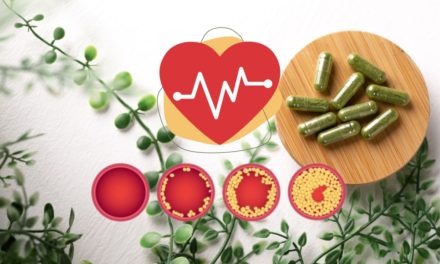Uncovering High Blood Pressure: Understanding, Treating, and Preventing High Blood Pressure
Introduction:
High blood pressure, commonly referred to as high blood pressure, is a prevalent and silent health condition that affects millions of people worldwide. It is a major risk factor for heart diseases, such as heart attack, stroke and heart failure. Understanding the nature of high blood pressure, recognizing its health effects, and implementing appropriate treatment and prevention strategies are critical to managing the condition and promoting overall health. In this article, we explore the world of high blood pressure, exploring its causes, consequences, treatment options, and preventative measures.
1. Understanding High Blood Pressure:
Hypertension is a chronic condition characterized by persistent high blood pressure. Blood pressure is the force exerted by the blood against the artery walls as the heart pumps it throughout the body. Hypertension is defined as blood pressure consistently at or above 130/80 mmHg.
2. Causes and risk factors:
Several factors contribute to the development of high blood pressure:
- a Unhealthy lifestyle: Food choices high in sodium, saturated fats and cholesterol, along with sedentary behavior, can increase the risk of high blood pressure.
- b Family history: A family history of high blood pressure increases the chances of developing the condition.
- c Age and sex: The risk of high blood pressure increases with age, and men have a higher risk of developing it by age 64. After menopause, women are at higher risk.
- d Obesity: Excess body weight, especially abdominal obesity, increases the risk of high blood pressure.
- e Medical conditions: Certain medical conditions, such as diabetes, kidney disease, and sleep deprivation, can contribute to the development of high blood pressure.
3. Consequences and Health Risks:
High blood pressure significantly increases the risk of cardiovascular disease and other health complications:
- a Heart disease: High blood pressure can damage the arteries that supply blood to the heart, leading to coronary artery disease, heart attack and heart failure.
- b Stroke: High blood pressure can weaken and narrow the blood vessels in the brain, increasing the risk of stroke.
- c Kidney disease: Uncontrolled high blood pressure can damage the kidneys over time, leading to chronic kidney disease and the need for dialysis or transplantation.
- d Vision problems: High blood pressure can damage the blood vessels in the eyes, which can result in vision loss or even blindness.
Treatment options:
Treatment for high blood pressure involves a combination of lifestyle changes and, in some cases, medication. The following strategies are commonly used:
- a. Lifestyle changes: Adopting a heart-healthy diet, such as the Dietary Approaches to Prevent High Blood Pressure (DASH) diet, which limits sodium intake and includes fruits, vegetables, whole grains, lean protein and low Emphasizes high-fat dairy products. Regular physical activity, weight management, smoking cessation, and stress reduction techniques are also important.
- b. Medications: In some cases, healthcare professionals may prescribe medications to control blood pressure, such as diuretics, beta blockers, ACE inhibitors, ARBs, calcium channel blockers, or a combination of these.
Prevention Strategies:
Prevention of high blood pressure includes adopting healthy lifestyle habits and managing risk factors:
- a. Balanced Diet: Choose nutritious foods and limit sodium, saturated fat and cholesterol. Increase consumption of fruits, vegetables, whole grains and lean protein.
- b Regular exercise: Engage in at least 150 minutes of regular physical activity per week. This may include aerobic exercises, strength training, or activities such as brisk walking or swimming.
- c Maintain a healthy weight: Achieve and maintain a healthy weight through a balanced diet and regular exercise.
- d Limit alcohol consumption: Limit alcohol intake to moderate levels. Men should not drink more than two drinks a day, while women should not drink more than one drink a day.
- e Smoking cessation: Quit smoking or avoid exposure to others. Smoking can raise blood pressure and damage blood vessels.
- f Stress management: Practice stress reduction techniques, such as meditation, deep breathing exercises, or engaging in hobbies and activities that promote relaxation.
Result:
High blood pressure, a common but potentially dangerous condition, requires attention and proactive management. By understanding its causes, recognizing its consequences, and implementing appropriate treatment and prevention strategies, individuals can effectively manage their blood pressure and promote overall health. It is important to adopt a heart-healthy lifestyle, get regular medical check-ups, take prescribed medications when needed, and manage risk factors. By prioritizing prevention, raising awareness, and advocating for a healthier society, we can combat the silent health threat of hypertension and ensure a better future for all.










